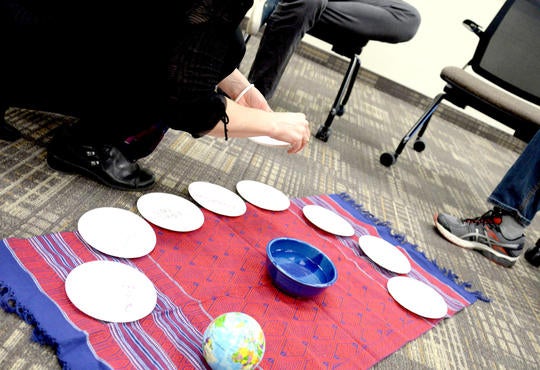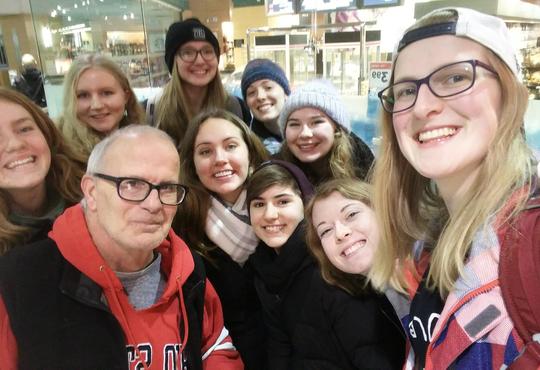Every year, the Canadian Roots Exchange hosts the National Youth Reconciliation Conference as a way to facilitate conversation between Indigenous and non-Indigenous youth and to encourage dialogue on solidarity and reconciliation. It aims to challenge negative stereotypes and promote respect and understanding between all people living in Canada. As Peace and Conflict Studies students, we attended the 2018 conference in Sudbury, February 22-14, with the hopes of learning more about our Indigenous neighbours.
There were many topics that circulated throughout the conference, including the sacredness of water, the cases of missing and murdered Indigenous women, the Colten Boushie and Tina Fontaine court verdicts, and the importance of retaining Indigenous language and culture. We were particularly impacted by conversations about what it means to be an ally and how education plays a role in that.
Someone at the conference asked “Are you an ally by conviction, or an ally by convenience?” This question challenged both of us to rethink our relations with Indigenous peoples, and ask ourselves what we are doing to be intentional about building these relationships.
We often perceive allyship as an action, or an output of behaviour, but this may be missing the importance of input, or what we need to change in ourselves first. Which thought-processes do we need to break down to stop perceiving Indigenous peoples as lesser people who need our help? In what ways have we forgotten that our very own histories of coming to Canada are built on the oppression of Indigenous peoples?
We must be actively cognizant of our own prejudice, stereotypes, and rooted worldviews, and realize the ways we devalue Indigenous ways of being, whether intentionally or subconsciously.
Throughout the weekend we heard echoes of the same phrase: “Education is the first step of reconciliation.” Our privilege has enabled us to expect education to fall right into our laps, but learning more about Indigenous culture and history requires us to seek unconventional ways of learning. When we do this, we will be challenged to value Indigenous ways of knowing equally with our own set ways of thinking.
When we think we have the answers for reconciliation, it is essential that we consult our Indigenous neighbours first. When we are certain our Christian beliefs give us explicit direction to approach healing, may we question our own notions of what we believe God wants us to do. And when it seems as though Canada is making progress towards reconciliation, let us search for the truths that still need to be told for our country.






